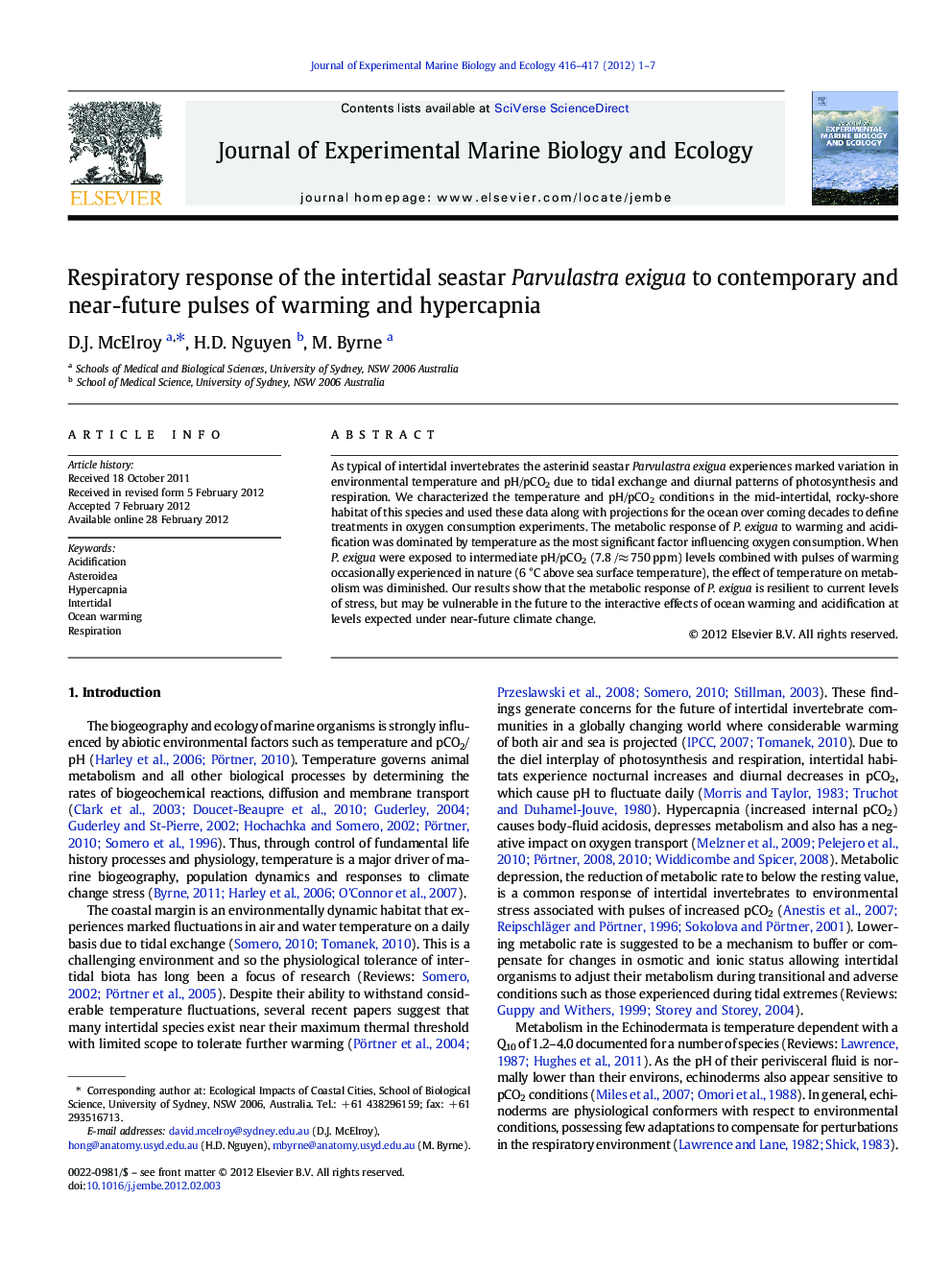| Article ID | Journal | Published Year | Pages | File Type |
|---|---|---|---|---|
| 4396085 | Journal of Experimental Marine Biology and Ecology | 2012 | 7 Pages |
As typical of intertidal invertebrates the asterinid seastar Parvulastra exigua experiences marked variation in environmental temperature and pH/pCO2 due to tidal exchange and diurnal patterns of photosynthesis and respiration. We characterized the temperature and pH/pCO2 conditions in the mid-intertidal, rocky-shore habitat of this species and used these data along with projections for the ocean over coming decades to define treatments in oxygen consumption experiments. The metabolic response of P. exigua to warming and acidification was dominated by temperature as the most significant factor influencing oxygen consumption. When P. exigua were exposed to intermediate pH/pCO2 (7.8 /≈ 750 ppm) levels combined with pulses of warming occasionally experienced in nature (6 °C above sea surface temperature), the effect of temperature on metabolism was diminished. Our results show that the metabolic response of P. exigua is resilient to current levels of stress, but may be vulnerable in the future to the interactive effects of ocean warming and acidification at levels expected under near-future climate change.
► Temperature and pH flux in intertidal pools of Parvulastra exigua was characterised ► The metabolic response of P. exigua to warming and acidification was documented ► Warming increased metabolism, while acidification did not affect metabolism ► P. exigua metabolism is robust to contemporary warming and acidification ► Stressor interaction indicates vulnerability to future climate change
